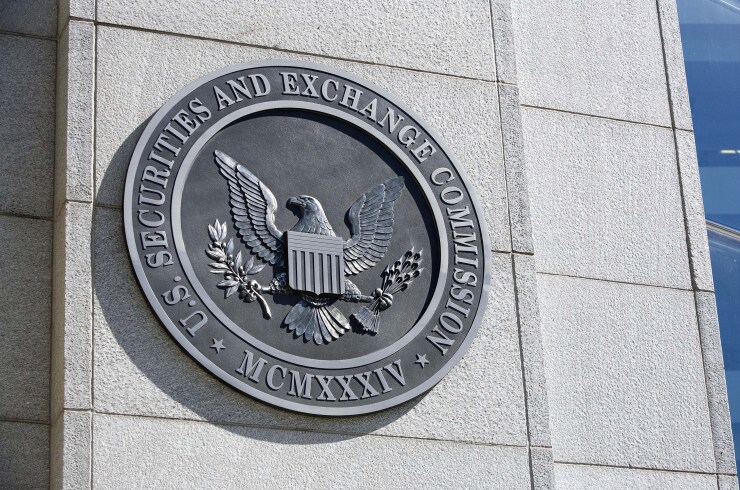The more frequently companies report their earnings, the less likely investors are to make knee-jerk investment decisions and the better informed they become about a business's financial performance, according to recent academic research.
A study found that switching from annual to semiannual, and semiannual to quarterly reporting, resulted in a higher financial earnings response coefficient, which signals long-term investor orientation and a more accurate outlook on future performance.
Quarterly reporting also enables investors and analysts to isolate business-critical periods of time — such as the holiday shopping season or the summer travel rush — and assess performance relative to previous years as well as competitors. The
"Our research focuses on the association between the financial frequency and investors' estimation of firms' future earnings," said David Koo, an assistant professor of accounting at the Costello College of Business at George Mason University in Fairfax, Virginia. "We actually examine whether more frequent financial reporting can help investors better estimate the firm's future earnings. Our study is more related to investor short termism or investor myopia rather than managers' myopia or managers' short termism."
He co-authored the study with Jenna D'Adduzio of the University of British Columbia, Santhosh Ramalingegowda of the University of Georgia and Yong Yu of the University of Texas at Austin.
Investors often focus on turning an immediate profit, an outlook called "short termism," while overlooking long-term growth, and that can be to the detriment of the company. Concerns about short termism have periodically reignited the longstanding debate about quarterly-reporting rules. In

"Usually, people have some misunderstanding that if firms provide more frequent financial reporting, such as quarterly reporting, it can make investors more myopic, or make investors more obsessed with short-term earnings rather than long-term earnings," said Koo. "However, our findings show that actually more frequent financial reporting than quarterly reporting can help investors better understand the firm's future performance."
There are several reasons why that happens. "More frequent financial reporting can reveal seasonal patterns and trends of the firm's earnings and sales performance, which can provide investors with incremental information beyond annual earnings about the firm's ability to generate future cash flows," said Koo.
He gave the example of a company whose earnings or sales declined 10% from one year to the next, which could be due to a one-time event. But if its earnings from quarter to quarter were consistently lower than the previous year, that points more definitively to an overall decline from the previous year and has long-term implications for investors.
More frequent reporting spurs investors' appetite for even more information. "Increase in the mandatory financial reporting can actually increase the investors' demand for other types of disclosures such as firms' voluntary disclosure of earnings and/or revenue guidance," said Koo. "Although firms' reporting and disclosure can generally increase together, which can actually further help outside market intermediaries such as financial analysts, which are active in information generation activities, thereby enriching the information environment surrounding firms. We expect that an increase in the mandated report frequency to further enrich the overall information environment surrounding firms."
However, he voiced a word of caution of going beyond quarterly reporting to more frequent reporting. "We have looked at only the changes from the annual or semiannual to the quarterly reporting, so we do not know yet the impact or consequences of more frequent reporting than quarterly reporting," he said.
The study relies on a metric known as the future earnings response coefficient that has been used by other accounting researchers. "Basically the earnings response coefficient model is the model that looks at the relationship between the returns and the earnings," said Koo. "The reason why we use this model is even though we want to see the relationship between the financial frequency and the investors' estimation of future earnings, we cannot tangibly capture investors' information use or processing. So, as a proxy for investors' use and processing of information, we use stock prices or stock returns of a company. The future earnings response coefficient is basically what is the relationship between the current year stock returns and the firm's future earnings, relative to the past and then current-year earnings? What we found is after the increase in the mandated reporting frequency, the relationship and association between the stock returns and the future earnings numbers becomes higher, even after controlling for the past and current years. Basically, after the increase in the reporting frequency, investors can better anticipate the firm's future earnings and then incorporate more of future earnings in pricing the company."
Both investors and the SEC may want to consider the research. "Our study's findings provide implications for the investor side," said Koo. "The SEC should consider diverse aspects, however, our findings provide some piece of evidence they can consider. Financial reporting frequency can affect investors and managers and other stakeholders. However, if we look at this from the investor's perspective, maintaining the current reporting regime will be more beneficial to the investor's interest rather than less frequent financial reporting. However, the SEC may consider other consequences or aspects."





